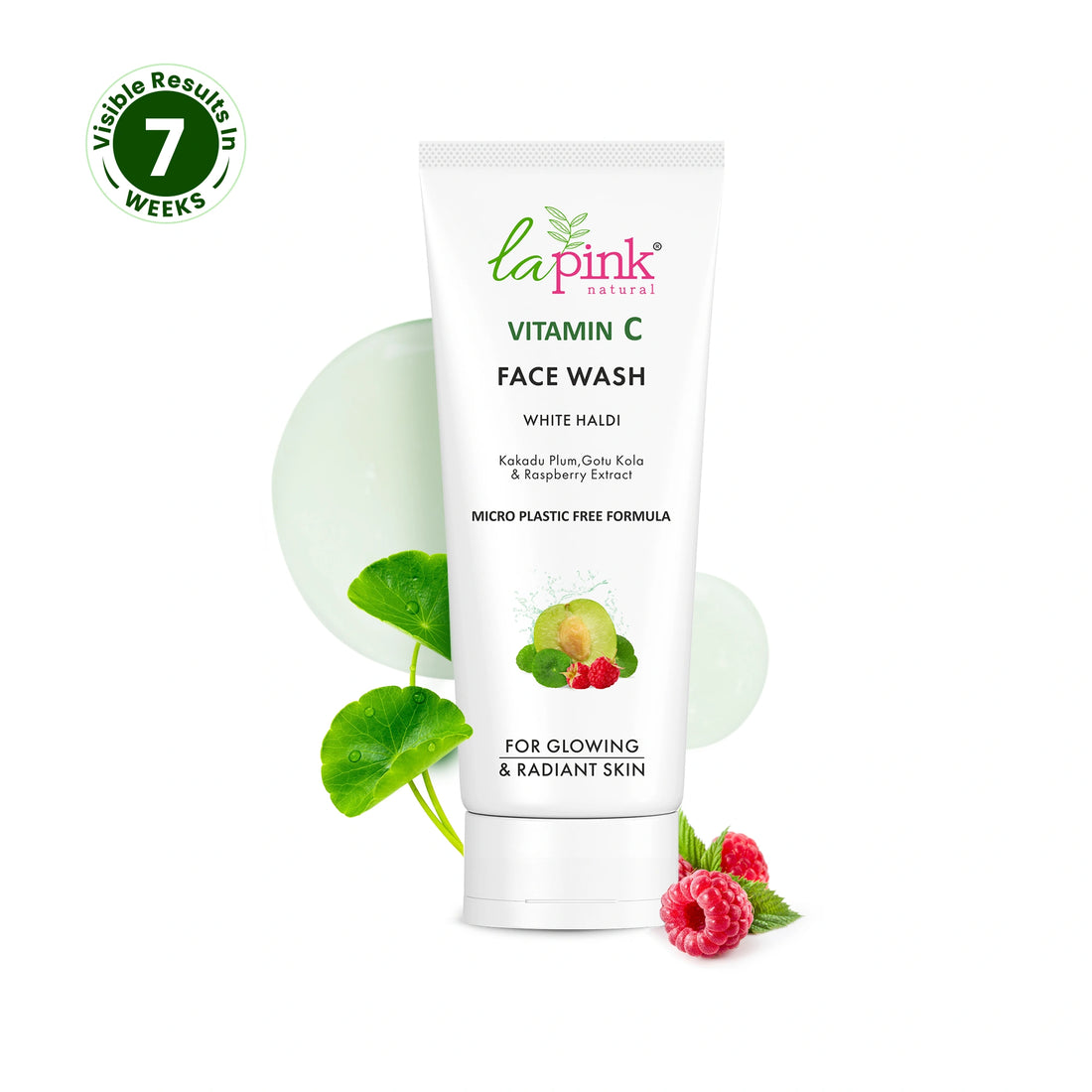Benefits of Azelaic Acid for Skin
Azelaic acid is a skin-friendly acid that helps fight acne, blemishes, dark spots, redness, and even skin texture. Let us understand the benefits of Azelaic acid in detail here:
Treats Acne
Azelaic acid stops the growth of Cuti Bacterium acnes, the acne-causing bacteria on the skin’s surface, and clears out clogged pores. It is also responsible for restricting future breakouts by promoting skin cell turnover. Studies show that using a 15-20% Azelaic acid formulation helps in maintenance therapy for acne.
Reduces Hyperpigmentation and Brightens Skin Tone
Dermatologists recommend Azelic acid formulations for those struggling with uneven skin tone, melasma, and post-acne marks. This acid has the ability to reduce tyrosinase synthesis (Tyrosinase is an enzyme mainly responsible for melanin production). This helps achieve even skin tone and fade dark spots significantly. Studies prove that Azelic acid is as good as hydroquinone when it comes to treating pigmentation for brighter skin.
Soothes Redness and Inflammation
Azelaic acid is loaded with anti-inflammatory properties which makes it an ideal pick for treating rosacea. It calms the skin, reduces visible redness, and improves overall skin texture. Clinical research shows that 15% Azelaic acid gel showed significant improvement in rosacea symptoms over 12 weeks.
Antioxidant Properties
One of the best features of Azelaic acid is that it doesn’t just clear the skin, it also helps with protecting it. This acid has antioxidant properties that help neutralize free radicals on the skin which can otherwise contribute to premature aging and ultimately damage the skin. Azelic acid thus supports the creation of a healthy skin barrier over time.
Helps Combat Symptoms of Rosacea
People who have Rosacea-prone skin face challenges tackling inflammation, redness, and visible blood vessels. Azelaic acid has soothing properties which help in reducing inflammatory responses. If you use Azelaic acid-based products regularly, it will help reduce flare-ups and maintain calmer skin.
Microplastics and Efficiency of Azelaic Acid on the Skin
Often added to skincare products as thickeners and texturizing agents, Microplastics interfere with the absorption and effectiveness of active ingredients like Azelaic acid. They have the tendency to create a superficial layer over the skin which may prevent Azelaic acid from properly penetrating and performing its functions into the skin. Microplastics have been studied for their harmful effect on the skin’s natural barrier. This is one of the common reasons for inflammation and imbalance of pH levels.
100% microplastic-free formulations by La Pink ensure that the skin benefits from potent ingredients like Azelaic acid. The brand focuses on skin protection and the efficient performance of these ingredients without any interference by microplastics for visible and effective results.
How to Use Azelaic Acid in Your Skin Care Routine?
Azelaic acid-based skincare products are ideally between 10% to 20%. The best way to incorporate it into your skincare routine is to understand your skin type and take it slow. Start by adding it once in your skincare routine, preferably at night to understand its effect on the skin. You must contact a dermatologist if you are looking for targeted treatment. Here are the steps you can follow to add Azelaic acid to your skincare routine:
- Gently cleanse your skin to get rid of oil, dirt, and makeup
- Get your hands on a hydrating toner to prep your skin
- Take a pea-sized amount of Azelaic acid on your fingers and spread a thin layer on your skin
- Lock in hydration with a good moisturizer.
Just make sure that if you are applying any Azelaic acid-based product, then do not pair it with strong exfoliants or alcoholic cleansers. It may cause irritation to the skin.
Azelaic acid is a great ingredient to help maintain your skin health. Not that it just addresses many skin concerns, but it has minimal risk. With the right recommendations and concentration, Azelaic acid can earn a permanent spot in your skincare regime.



































































